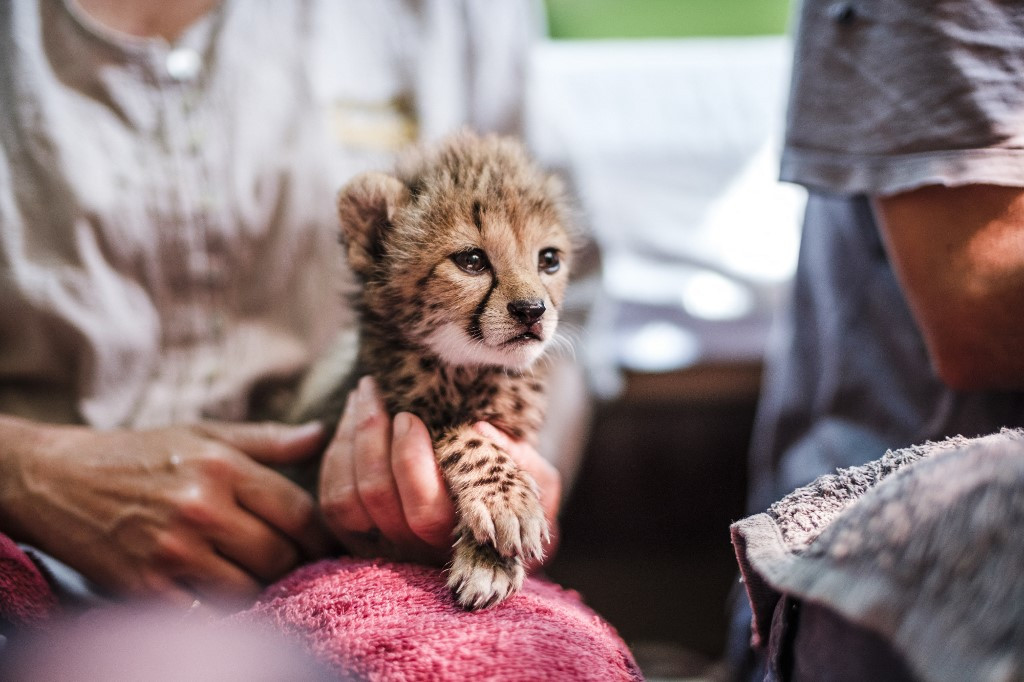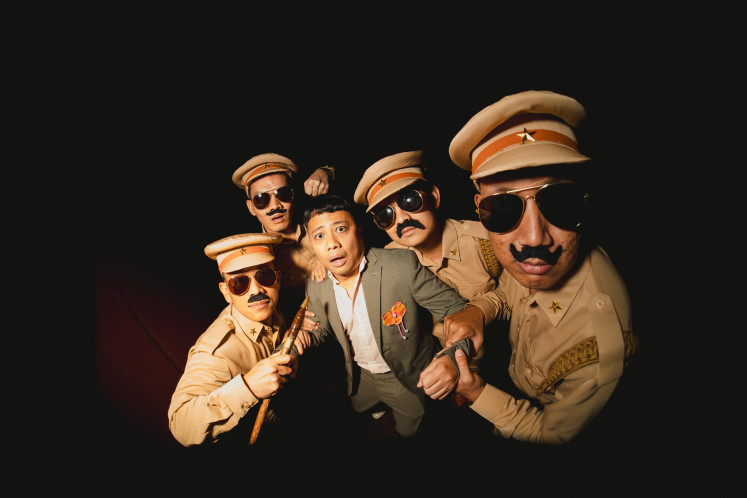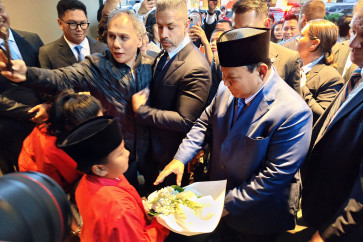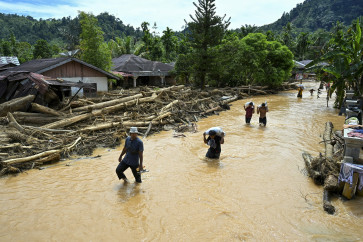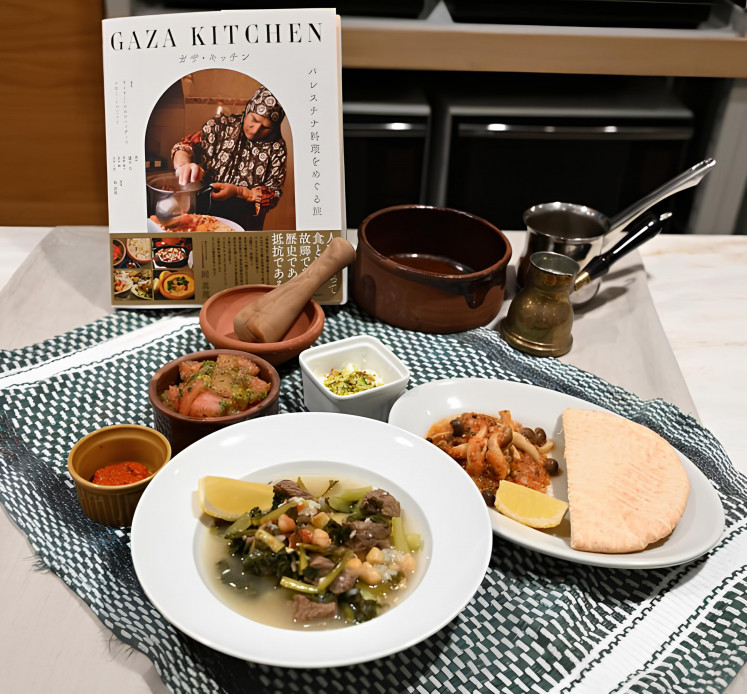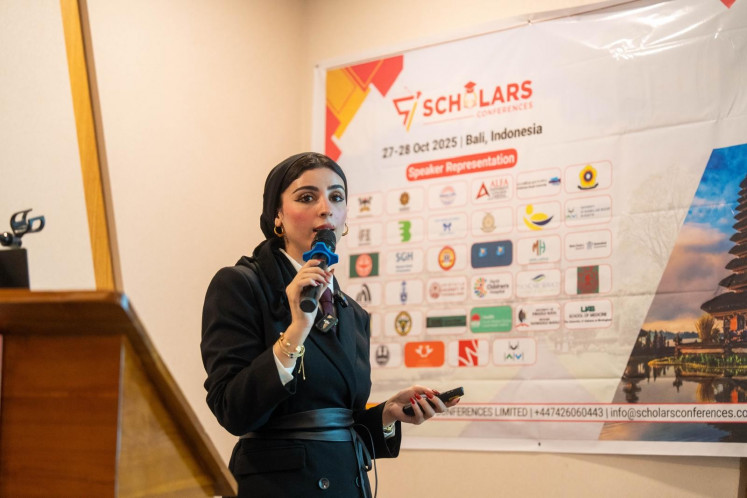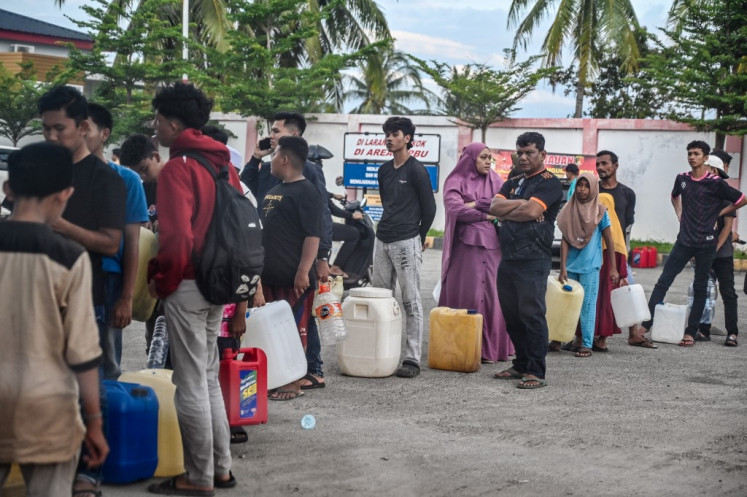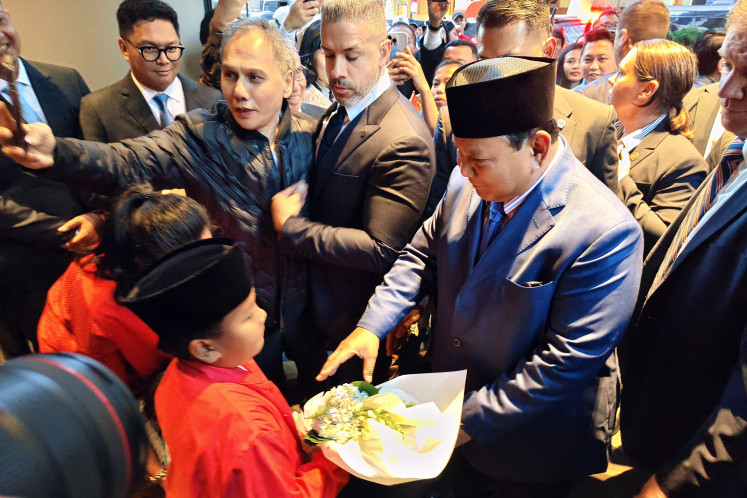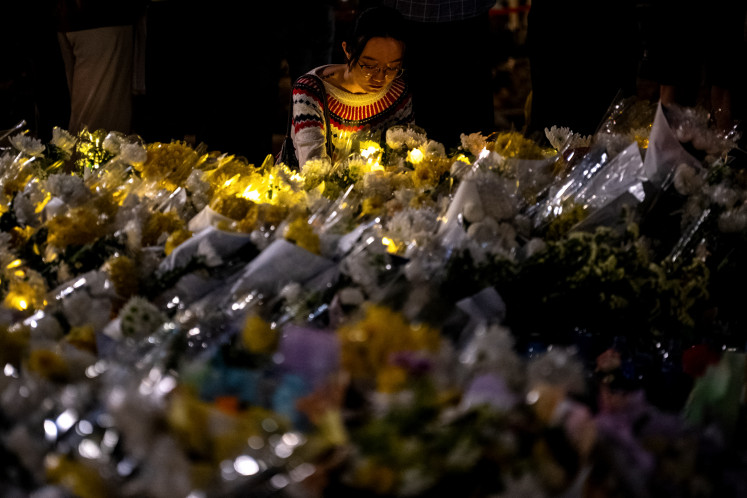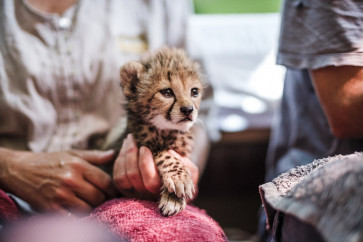Popular Reads
Top Results
Can't find what you're looking for?
View all search resultsPopular Reads
Top Results
Can't find what you're looking for?
View all search resultsCheetahs fast running to extinction as cub trade thrives
Every year, an estimated 300 cheetah cubs are trafficked through Somaliland to wealthy buyers in the Middle East seeking exotic pets.
Change text size
Gift Premium Articles
to Anyone
T
iny, weeks-old cheetah cubs suckled from baby bottles and purred weakly, their condition still dangerously precarious after their rescue from the Horn of Africa's illegal wildlife trade.
Around half the cubs saved from traffickers do not survive the trauma -- and there are real concerns for the smallest of this lot, a frail infant nicknamed "Green" weighing just 700 grams (25 ounces).
"It was very touch and go with Green," said Laurie Marker, founder of the Cheetah Conservation Fund (CCF), inspecting the mewling cub at the non-profit organisation's rescue centre in Somaliland.
They are the lucky ones -- every year an estimated 300 cheetah cubs are trafficked through Somaliland to wealthy buyers in the Middle East seeking exotic pets.
Snatched from their mothers, shipped out of Africa to war-torn Yemen and onward to the Gulf, cubs that survive the ordeal can fetch up to $15,000 on the black market.
It is a busy trade, one less familiar than criminal markets for elephant ivory or rhino horn, but equally devastating for Africa's most endangered big cat.
Loved to death

